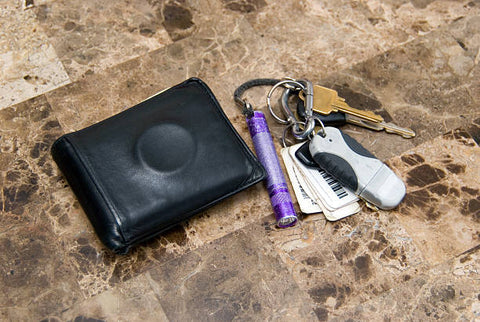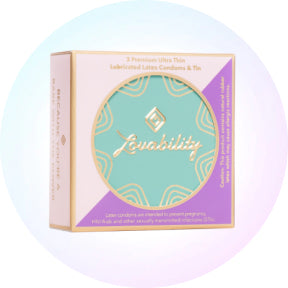Resources — Condoms
How Effective Are Birth Control and Condoms
The most common form of birth control in use today is the condom. Condoms work by preventing pregnancy and sexually transmitted diseases like HIV/AIDS, with less than 1% failure rate when used correctly every time you have protected sex.
As effective as condoms and birth control are, they are not perfect. The birth rate or pregnancy still occurs due to errors in using condoms, often from misuse. It is important for people who do not want kids yet (or ever) to know males condoms are 98% effective at preventing pregnancy (rounded down to 85% due to human mistakes). Obviously this is not the only reason why condoms are so popular. They are also vital at protecting against sexually transmitted diseases (STD’s).
How do I know if my birth control is working?
Getting yourself tested would be the sure fire way. It is important to monitor how regular your periods occur and whether they are any lighter or less painful.
How effective are birth control pills and condoms together?
If you use both a condom and the pill together, do they have an unmatched ability to keep things zen-like and 100% protect you from getting pregnant? Well, no not quiet. There is no method which is 100% effective (other than avoiding vaginal intercourse in the first place) Having said this, it would be a best practice and the safest option of all available at being effective at boh reducing the risk of pregnancy but also contracting or passing an STI.
Ideal use, or typical use
These methods show how effective they can be with "perfect usage", which means that the correct technique is always used.
If contraception is not used correctly, it will be less effective in preventing pregnancy.
Birth Control Pill
- These are around 91% effective when taken daily.
Birth Control Implant
- These are around 99% effective and typically last up to 5 years. Low maintenance too.
IUD
- These are reported to be 99% effective and can last anywhere from 3 to 12 years. Low maintenance too.
Male Condoms
- 85% effective for birth control. A new condom is required every time.
Female Condoms
- Internal condoms are reported to be 79% effective.
Female Sterilization also known as Tubal Ligation (permanent contraception)
- Female sterilization: More than 99% effective after being sterilized.
Male sterilization or Vasectomy (permanent contraception)
- A vasectomy is 99% effective at preventing pregnancy occuring.
What are the effects of condoms on pregnancy?
Condoms are 98% effective in preventing pregnancy if used correctly each and every time you have sex. In real life, condoms may only be effective 85% of the time due to human error, which means that approximately 15 percent of those who use condoms as their only method of contraception may still fall pregnant.
Should I still use condoms while on the pill?
For some women, the pill is not enough to keep them safe from STDs. Women on birth control should continue using condoms every time they have penetrative sex and especially with new sexual partners!
It’s important to note that as effective as the pill is for preventing pregnancy, it does not however protect against sexually transmitted diseases like HIV/AIDS or HPV. It also does not cover other things such as chlamydia which can be contracted during oral activities (such infection could cause infertility in future).
Can you use both birth control and condoms?
Yes, using both birth control and condoms is a perfect way to lower your chances of pregnancy. When used together, it is even more effective at preventing sexually transmitted diseases like HIV or HPV, thanks in part to their vaso contraceptive effect that makes sex safer for women by reducing abrasions caused during intercourse, among other things.
Is one pill enough to stop pregnancy?
Yes, If taken within the grace period of 24-72 hours after unprotected sex or contraception failure, then the morning after pill is normally accepted as being very effective.
Do you need to pull out with an IUD?
Firstly, if you are genuinely considering removing the IUD yourself, I would urge you to stop for a moment and consider getting it done safely and professionally by your healthcare practitioner. If, however, you are adamant you want to pull out your IUD yourself, there is a string in the vagina, which it is attached to. Some people report that their partner can see it, which usually means they have an idea of how far up into the vaginal cavity it goes.
How do you tell if you are pregnant with an IUD?
I have heard of the contraceptive implant, but how do you know if you could still be pregnant despite using an IUD for protection in the first place?
There is no way to identify this with complete certainty unless it happens in person at your doctor's surgery. One common observation is women will have some typical morning sickness and fatigue. Other signs include:
- Sudden severe abdominal pain
- Nausea
- Fatigue
- Weakness
- Dizziness or fainting
How do I know the pill has worked?
You are probably wondering how to tell if the morning after pill has worked. Well, there is always waiting for your next period or if you can’t wait and want the most reliable answer, then get a test kit. These pills must be used within 24 hours of unprotected sex, can be 99% effective.
Can pills delay my periods?
Birth control pills have been around for over 50 years, and they are the most common form of female contraception today. The hormonal process by which birth control works means that some people may experience lighter periods than they are used to or even find they skip them altogether. This however is perfectly normal.
What are the disadvantages of IUD?
There are many potential disadvantages to having an IUD:
- Some women report that their periods may become heavier, longer or more painful after getting one in place; however, this can improve over time with use.
- It is also important to know that it does not protect against STIs, so you will still need condoms if you are taking precautions.
- Any infection during examination or whilst fitting the device if left untreated could lead to a pelvic inflammatory disease that requires medical attention right away.
Do I need to use condoms with an IUD?
An IUD whilst very effective at birth control will not protect you from STDs. Therefore, to reduce the risks further, you may consider combining use with a condom as well. Whilst still not 100% effective, it will reduce the risks further so you are both better protected.
Is an IUD safer than a pill?
Yes, it can be. The IUD is reported to be 99% effective at preventing pregnancy, whereas the pill is 91%. The reason for the pill being slightly lower is often due to incorrect use such as simply not taking it regularly.
Should I take a pregnancy test if I have an IUD?
A pregnancy test is an easy way to determine whether or not you may be pregnant so you can get a clearer idea of whether you may or may not be. If your periods are irregular or stop entirely for more than two weeks after suspecting that the IUD has failed, then it’s worth taking a quick and inexpensive Test Kit to be sure.
In most cases, these types of tests are 99% accurate, meaning they'll give off negative results if there's no chance whatsoever of you being pregnant.
How Long Can I Keep a Condom in my Wallet
Ah, the trusty wallet – our faithful companion through thick and thin, carrying everything from cash to cards and, for some, even a condom.
But how long can a condom safely reside in the depths of your wallet before it's time to say goodbye?
Is My Wallet A Good Place To Keep A Condom?
First, it's essential to address the common misconception that your wallet is a suitable long-term home for condoms. While it may seem convenient to have protection on hand at all times, your wallet is NOT the ideal environment for storing condoms.

Why? For starters, wallets experience a fair amount of wear and tear. From constant bending and folding to exposure to heat and moisture, your wallet subjects condoms to less-than-ideal conditions. Modern condoms are a scientific marvel, but over time, leaving a condom inside a wallet is likely to lead to damage or deterioration of the condom, rendering it less effective when you need it most. And while most condoms have a 4 to 5 year shelf-life, condoms do eventually expire.
What Carrying Condoms Means To Your Partner
Perhaps the best reason to carry condoms but NOT in your wallet, however, is simply that it doesn't give off the best vibes to your prospective partner. Don't get me wrong. Using protection is a strong sign of respect for your partner. But if you want to show him or her that you really care, be proudly prepared and don't pull one of of your wallet. Because - as a man or a woman - when you responsibly carry condoms and insist on using body-safe condoms, you're teaching your partner how to treat you.
How Long Can I Keep A Condom In My Wallet?
Ok, so assuming you don't have anywhere else to keep a condom when you're heading out, how long can you keep a condom in your wallet before it's time to retire it?
The general consensus is that condoms should not be stored in wallets for extended periods – ideally, no longer than a few days, if not just a few hours. Any time a condom is left in a wallet - particularly a man's wallet that sits in his back pants pocket - increases the risk of damage to the condom and decreases its effectiveness.
Even though the wrapper may look fine, the condom itself might be damaged. Unfortunately, condoms kept in a wallet can easily become worn and break.
The Smartest Way To Carry Condoms
The best way to make sure your condoms are protected from damage and easily accessible when you're out on the town: consider investing in a discreet condom-carrying tin or case. A condom-carrying tin is designed specifically to keep your condoms - usually up to 4 condoms at a time - safe and secure.
If a condom case isn't your style, you can also stash condoms in your front or shirt pocket, a purse, or a compartment in your bag. Just be sure to avoid exposing them to sharp objects, overly tight spaces, or extreme temperatures that could compromise their integrity. Keeping condoms in the glove compartment or trunk of your car sounds like a good idea, but do not store them in there for extended periods as the temperature (or shifts in temperature) will likely impact and degrade the condom as well.
Most individual condom packaging won't give you much protection, so be mindful to not be too rough with it. Buttercup Condoms offer added protection from damage because they're sealed inside a recyclabe, easy-open plastic buttercup wrap where the condom sits. Not great for wallets, but ideal if you're just tossing it in your pocket or in a bag.
How Do I Store Condoms Safely?
Generally, store your condoms in a dry, cool location, away from sharp objects and direct sunlight. Condoms can be damaged by heat and moisture no matter where they are stored. Around room temperature is the best, but condoms should not be kept higher than 100°F (there's no formal guidance on the minimum temperature at which to store condoms, though the general consensus is to not expose them to temperatures below 32 °F).
How Can I Tell If A Condom Is Damaged Or Expired?
It is fairly easy to determine if condoms have been damaged or are expired.
1. Check The Expiration Date
Even if you just purchased the condoms, always check the expiration date on the individual condom before use (yes, each condom has an expiration date printed on the wrapper). Like most products, condoms are not meant to last forever, and expired condom are more likely to break.
2. Examine The Integrity Of The Packaging
To confirm the packaging of the condom has not been compromised, press on the wrapper—you should feel a little cushion of air, indicating the wrapper is sealed and there are no air holes. Assuming the condoms are lubricated, you can also feel for the slippery feeling of the lube. Another little trick is to check if any lubricant has leaked out; if it has, the condom will feel slippery and the box where they are stored may have dark, oily stains.
For condoms in buttercup wrappers, you won't be able to press the wrapper, but you can quickly inspect the rim of the buttercup to make sure there are no gaps in the seal between the label and the plastic cup.
3. Feel The Texture Of The Condom
A healthy condom will feel and even smell fresh when it is first opened. Condoms subject to extreme temperatures (hot or cold) or whose wrappers are damaged exposing the condom to air, however, will appear dry, making it more likely to break or leak during use.
Of course, once you've used a condom, you should NOT clean it and use it again. Condoms are only good for a one-time use.
What Do I Do If I'm Not Sure My Condoms Are Still Good?
This one is easy. If you're just not sure whether your condom is safe to use, throw it out and buy new ones.
Aside from the fact that you'll be worried and unable to enjoy the experience, it is never worth the risk of pregnancy or passing along / contracting an STI to use what you suspect is a degraded condom. Don't do it.
Do I Need To Always Have A Condom With Me?
Who knows when you may need a condom, right? Well, not exactly.
While men are optimistic and hopeful, they often don't know exactly when they're going to have sex (and hence, stick a condom in their wallet just in case). For women, it's often the opposite; we usually know when we're going to have sex - especially if it is the first time with someone new. Yes, there are things women do when they know they're going to have sex - and one of those is to make sure we have body-safe condoms at the ready!
Carrying and using condoms makes sex much more enjoyable knowing you are safe and removes any unwanted fear knowing you are always prepared. This is one of the most fantastic reasons to embrace your sexual empowerment and to buy / carry condoms.
_______________________________________
In the world of safe sex, it's important to be prepared while also taking care of your protection. So, next time you reach for your wallet, remember to give your condoms the care and consideration they deserve – after all, they're there to keep you safe and sound in the heat of the moment!
____________________________________________












